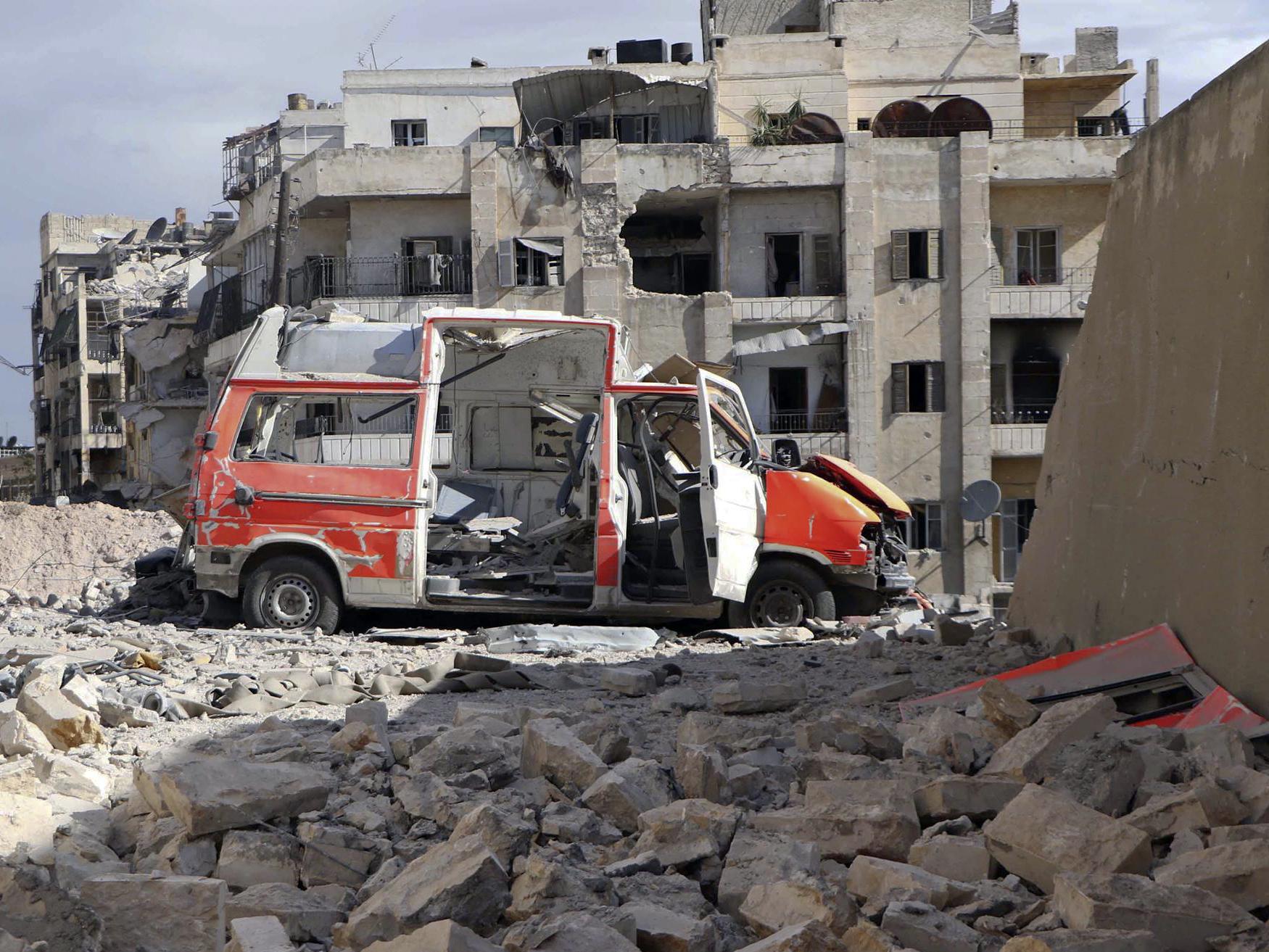Syrian and Russian forces 'weaponised healthcare' by deliberately targeting ambulances in civil war, researchers say
Researchers analysed over 200 individual attacks involving 243 ambulances, more than half of which were deliberately targeted

Syrian government and Russian armed forces deliberately and repeatedly targeted ambulances as part of a calculated strategy to gain the upper hand in the country’s civil war, a new study has claimed.
Researchers analysed over 200 individual attacks involving 243 ambulances, more than half of which were deliberately targeted. Some 60 per cent of the attacks were carried out by Syrian government forces, while 29 per cent were blamed on Russia, which joined the conflict on the side of President Bashar al-Assad in 2015.
The “weaponisation of healthcare” has been used throughout the conflict “to destabilise, intimidate, and demoralise”, the researchers wrote in BMJ Global Health, a peer-reviewed online journal.
After studying data from individual reports submitted to the Syrian Network for Human Rights, they described Syria as “the most dangerous place in the world to be a healthcare provider”, where “no cadre of health worker or health facility is immune to the attacks”.
“The intentional, highly destructive and repetitive targeting of ambulances throughout the Syrian conflict has had an immeasurable and devastating impact on the people of Syria and the healthcare system,” the researchers added in the paper, titled “Ambulances under siege in Syria”.
They further noted that most of the attacks occurred in areas held by rebel forces, such as Aleppo, Idlib and Damascus. Only 1-2 per cent took place in pro-government areas.
The deliberate targeting of healthcare facilities has been a constant theme of Syria’s civil war. Even when coordinates of healthcare facilities have been provided to all relevant parties, they have been destroyed or targeted in attacks. As a result, most hospitals in rebel-held areas were forced to moved underground to avoid being targeted, and their locations kept secret.
Since the conflict began in 2011, Physicians for Human Rights has documented 542 attacks on medical sites. The rights group found the Syrian government and Russian forces responsible for 490 of them. Opposition groups were behind 23 of those attacks, while the US-led coalition was blamed for three.
Dr Zaher Sahloul, president of MedGlobal, an organisation that sends medical missions into Syria, worked in hospitals in the country that had been targeted several times.
“The last hospital where I worked in Aleppo was built underground because it was attacked 17 times. In spite of that, after I left it was targeted with a bunker buster,” he told The Independent. “Clearly that was the Russians, because the Syrian army doesn’t have access to that kind of weapon,” he added.
Dr Sahloul, who visited Syria a total of 12 times throughout the war on humanitarian medical missions, said the aim of the attacks on medical facilities was “to drive people out of their neighbourhoods and their cities”.
“If people look at the numbers of the Syrian crisis now and see millions of refugees, half of the population displaced, this is why. People are generally ready to stay through a lot if they have a functional hospital. But when you kill the hospitals and bomb ambulances, people leave,” he added.
In 2016, the United Nations Security Council passed a resolution that condemned attacks on medical facilities and personnel in armed conflict. Despite those efforts, the World Health Organisation reported earlier this year that attacks on health facilities had increased in the first two months of 2018.
In the first eight months of this year, the WHO said attacks on medical facilities had caused 97 deaths and 165 injuries of healthcare staff and their patients.
The researchers of the BMJ Global Health study, from Columbia University Medical Centre and the Mount Sinai St Luke’s hospital, both in New York City, called for the UN to do more “to protect the sacred space of medical neutrality in conflict and bring harsher punishments to perpetrators of violence against healthcare in Syria”.
Join our commenting forum
Join thought-provoking conversations, follow other Independent readers and see their replies
Comments